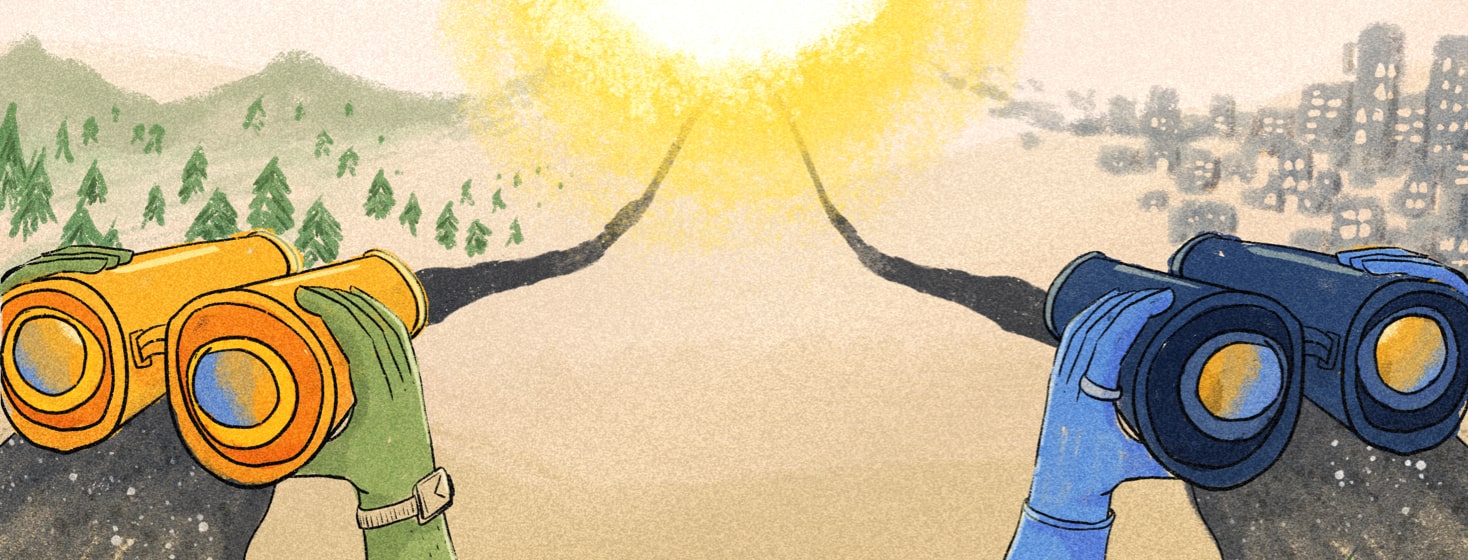Different Experiences, Same Reflections (Part 1)
One day, on the way to the cottage, I listened to an interview from the CBC radio station (in Canada) of a lady with a newly published book about her closed-to-death experience and reflection. I was shocked after hearing her story. We have the same reflections, but our experiences are entirely different.
The lady's story
The lady was an editor in a Landon magazine of some diet and food, and the magazine was closed down due to poor business. So she came to Toronto (Canada) to travel and to plan for her next step. Meanwhile, she visited California friends and mentioned she loved hiking very much.
When she hiked in a National Park in California, she made the fatal mistake of leaving the original trail and going on a new one. Suddenly, she fell on a steep slope and fractured her hip and back. She lost her cell phone meanwhile. She lay down on the ground, and nobody was around. She endured four days, heat in the daytime, frozen at night, and no water or food.
Four days later, she was rescued, and fortunately, she recovered. Now she wrote a book of her closed-to-death experience and reflections. The interviewer from the CBC radio station asked her some questions as followings, which shocked me.
"Why did you shout for help knowing nobody was around?"
The lady wrote in her book that, in the first two days, although she knew nobody was around, she still yelled for help, hoping that somebody might be there to hear her and might rescue her. She thought it was people's instinct, and they do everything that may help when they are desperate.
This is the first point that echoes that people do everything to survive when desperate, and so do cancer patients. When I was just diagnosed with lung cancer, I did everything to find a cure, even if I didn't believe in some of these "cures." For example, my mother insisted that I had Chinese medicine and spent a fortune buying and shipping the medication to Canada. This medicine is all kinds of dry herbs, insects, and worms. My mom had to boil it for 4 hours every day, and I had to drink the decoction twice every day for 2.5 years. Thinking back today, I couldn't figure out what I was thinking. I was always confident and determined I knew what I was doing. How could I act so stupidly? I can only resort to the fact that I would do everything to survive when I'm desperate.
"Why were you feel grateful?"
In the book, the lady wrote that nobody was coming to the rescue after three days. Finally, she despaired and gave up all hope. The lady said she started to think she was going to die there, but she was doing the thing you always loved to do, i.e., hiking. She couldn't help but feel GRATEFUL.
I've heard "grateful" so many times from cancer patients. I wouldn't say the lady's answered of gratitude convincingly to me, but I knew what she was talking about. I also had the same experience and asked the same question again and again: Why do we as cancer patients feel such gratitude despite such a fatal disease? Why are we so supportive and understanding of each other's pain?
We thank our health care team for the medical care and the cancer researchers for developing the new treatments. Research indeed brings hope, but it's not enough, at least not for me to feel gratitude at that unprecedented level. I didn't remember what moment in my first three years' journey, but slowly I learned to let it go, that included my ambition, even my loved ones (difficult and painful), and my life. I accept death! I remembered I felt ok to die, and my children were ok.
That was at the end of the third year of my lung cancer journey. I never felt so relieved and grateful. For the following four years, I was like a different person from physical and mental recovery, exercising to advocating research for cancer, fundraising, and engaging in cancer patient-centered research. Yet, amazingly, I have all the energy, and I live a better life now after my cancer diagnosis.
I'm grateful after I accepted death.
Accepting death as a milestone
Accepting death is a milestone for my lung cancer journey and my life. It changed my view of life and love; it made me laugh better and longer. It gives me incredible peace.
However, in the interview, there is a part where the lady took brave action and achieved the desired outcome. Although I had a parallel plan for a while, I didn't take any action, and there was no outcome. This is because I don't have the courage!

Join the conversation